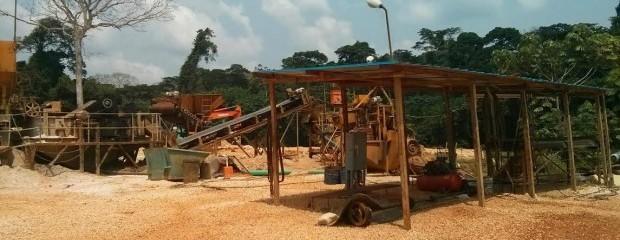Whither the Darfur Mediation? (II)
This is the second part of a paper based on a memorandum submitted by Alex de Waal and Abdul Mohammed to the informal consultation on the Darfur mediation, held in Geneva last week.
Part 2: What are the Interests of the Parties in a Negotiated Agreement?
Analysis of the Darfur war today leads inexorably to the conclusion: the conflict cannot be resolved as it stands today. Darfur may become tractable in the months and years ahead, but the current configuration means that mediated solutions are beyond our immediate reach.
Let us examine the different actors, their motivations and interests. All profess to want to reach a negotiated agreement. The current context and configuration means that for none of the belligerent parties is a negotiated agreement in their immediate interest.
The Sudan government is the most powerful actor in Darfur. Its basic attitude is that it would have won the war, politically and militarily, were it not for the involvement of Chad and the engagement of the international community which has kept an otherwise defunct rebellion alive. Khartoum argues that it has signed a ceasefire and a peace deal which were unfavourably slanted against it; that it signed under international pressure but in good faith; and that the other parties—the armed movements and the foreign guarantors—have failed to honour their commitments. Khartoum’s preoccupation is with forestalling what it sees as international efforts to pursue regime change under the guise of humanitarian intervention, and in neutralizing the threat from Chad. They take bellicose opeds in American papers as evidence in support of argument. (For example the piece in Tuesday’s New York Times by Mark Helprin in which he argued for threatening and preparing for military strikes, is cited by Khartoum’s hardliners as evidence for how America “really thinks” and as justification for their refusal to contemplate compromise.) Khartoum is not impressed with the international troops on the ground in Darfur. It does not take UNAMID seriously as a protection force but sees it as the vanguard of a more serious hostile political-military effort. It is not impressed with the mediation which it sees as a nuisance. While fending off this unwanted international attention, Khartoum pursues its internal solution on its own terms.
Khartoum will attend any peace talks because it would be foolish not to do so. Its delegates can participate confident that the rebels will either fail to show up, or if they do, fail to make any moves towards compromise positions.
The armed movements launched their insurrection on the basis of a set of political demands that enjoyed widespread support across the region. They were seen as fighting for a just cause. This was heightened by the atrocities of 2003 and 2004, in which the civilians sympathetic to the rebellion were the main victims. The world stood in solidarity with the people of Darfur, and the movements were the beneficiaries of that outrage. But the rebels failed to take advantage of their opportunity and are fast losing the moral high ground. The role of some members of the movements in fighting on behalf of the government of Chad is doing them no favours. Their common issues are receding as they fail to resolve their own internal issues of leadership. There are commanders in the field who still try to nourish the sense of political idealism that led them to take up arms, but they lack the political infrastructure to make their ideals a reality. There is no leader who is emerging to unite them. At present, none of them are capable of taking the critical decision to lead their people towards a workable peace.
Much of the energy of the rebel leadership is concerned with finding external sponsors. Some have done deals with Khartoum, others with Chad, Libya or the SPLA. In this context, an important political role for the UN-AU mediation is that it provides external recognition and with that, resources. There is a danger that the mediation effort will become just another patron to be played off against the others, and that some rebel leaders will therefore have an interest in keeping the mediation effort going rather than seeing it as a route to a peace deal with Khartoum. They have seen the fate of those who signed deals with Khartoum, including the internationally-guaranteed DPA—they are abandoned by the international community and left at the mercy of the NCP and security services.
Darfur’s Arabs have not yet found their political voice. During the height of hostilities four and five years ago, a number of Arab militia leaders were complicit in horrendous atrocities. They paid a high price: the Arabs’ livelihoods were disrupted, they were demonized and discredited internationally—the label "Janjaweed" was applied indiscriminately to the Darfur Arabs—and they didn’t benefit from international humanitarian aid. Nor were they represented at the peace talks. In the last year, the Arabs have mobilized themselves independently. They are far from united, but their position—independent from the rebels, in a limited government embrace—is emerging.
Several important Arab militia leaders deserted the government last year. But they found no reliable partner among the rebel movements. Chad was not interested. Nor were they taken seriously by the international community. Unsurprisingly they went back to Khartoum. Their calculation is that Khartoum is the least unreliable interlocutor, and also the most likely to prevail, so they might as well deal with it.
Other political leaders in Sudan are becoming frustrated with Darfur. Their main concerns are unity versus separation and electoral democracy, and they see the Darfur crisis as complicating and impeding their attempts to grapple with these fundamental national issues. They are becoming irritated with the Darfurian leaders’ disunity and what they see as political immaturity. SPLA efforts to foster rebel unity have foundered. Attempts by the civilian political parties in the North to make inroads into the Darfur crisis have led nowhere. Sudanese democrats are alarmed by the fact that many Darfurians are rejecting the census and the elections—they don’t want their long-cherished dreams of free elections to be held hostage by Darfur. Most likely, a consensus will emerge among Sudan’s political leaders to fence Darfur off from the main political concerns of the country, to try to minimize the damage that it is doing. Rather like Northern Ireland in British politics for a whole generation, Darfur will be an inconvenience, a nasty issue that is too difficult to resolve and so is left alone, with the citizens of the region disenfranchised to all intents and purposes.
Some of Sudan’s neighbours have mixed motives in Darfur. At worst, they may have an interest in keeping the conflict bubbling. At best, they would like to see a solution—but not a solution that puts the international community in the driving seat. The Chadian government does not want to see a resolution to the Darfur conflict before its own war is resolved. Given that the political crisis in Chad cannot be resolved on terms favourable to the current president, this creates—to say the least—a difficulty. In addition there is no serious international effort to grapple with the political crisis in Chad. The president of Chad knows that as long as Sudan is demonized, the Chadian rebels will share in that demonization, and he will benefit accordingly. But he also knows that if the international military presence in Chad and Darfur becomes too strong, he will be dispensable. Eritrea and Libya are also involved. In theory they are partners in the search for a negotiated solution. But in practice they do not often exercise the leverage that they possess in pursuit of compromise solutions.
This is a pretty gloomy picture. What is perhaps less gloomy is that many people in Darfur, after years of waiting for others to come to their rescue, are beginning to take matters into their own hands. One of us (Abdul) has recently returned from an extensive visit to Darfur in which he met with government officials, tribal chiefs and other members of the native administration, militia leaders, leaders of IDP camps, civil society and others. Little by little, illusions have been falling away. People are beginning to realize that if they don’t act to save themselves, they are doomed. People are knowledgeable about the politics of Darfur and well aware of the fading prospects for peace and protection. No-one thinks that the current arrangements and plans are viable. Everyone knows that if they wait for others to save Darfur they will be waiting a long, long time. So people are instead looking inward, trying to see what they can do to negotiate peace at a local level, trying to mobilize their own communities to stand up for their own interests. Darfurians say that they have gone through an extremely painful learning process over the last five years, but they have indeed learned—that the only people who have their interests truly at heart are they, themselves.






